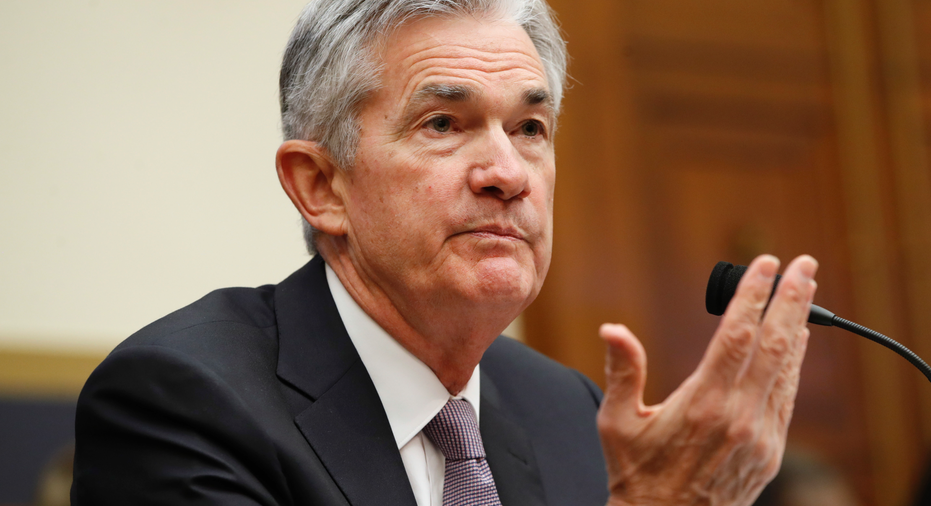The Latest: Powell stays out of dangerous political waters

WASHINGTON – The Latest on Federal Reserve Chairman Jerome Powell's testimony to the Joint Economic Committee (all times local):
___
12:50 p.m.
Powell is coming under pressure from Democrats who want the Fed to do more to deal with growing income inequality.
Many Democrats on the House Financial Services Committee pressed Powell to take a stand in opposition to the $1.5 trillion tax cut supported by Republicans on the grounds that the bulk of the benefits were going to wealthy Americans and would worsen income inequality. The Democrats also pushed Powell to criticize rising budget deficits in coming years, occurring in part because of the tax cuts, and also to oppose the administration's positions on immigration. The Democrats contended that the position on immigrants will hurt the economy by depressing growth in the labor force.
While it was Powell's first testimony as Fed chairman, he proved adept at deflecting all questions that would put him in dangerous political waters. To all the political questions, Powell said he wanted to "follow the path of my predecessors" and only venture opinions in areas dealing with monetary policy and leave questions outside this area to Congress and the administration.
___
12:45 p.m.
Treasury yields climbed immediately after Powell said his personal outlook on the economy had strengthened since December. That observation appeared to raise expectations that the Fed could become more aggressive about raising interest rates.
Higher interest rates tend to depress stock and bond prices. Traders responded by knocking down share prices, particularly for stocks that pay big dividends. The Standard & Poor's 500 index was down 0.5 percent in early afternoon trading and was on track to snap a three-day winning streak.
___
10:50 a.m.
Powell will not say whether the Fed's projection for three rate increases will change when the central bank next month. But he says the central bank will take note of a number of positive developments.
Powell says since the Fed last projected the path for interest rates in December, the incoming economic data has shown the economy is strengthening and there is more confidence that inflation will move up to the Fed's 2 percent target.
Powell says that the government's tax and spending policies have also become more stimulative. He says that each member of the Fed will need to take these developments into account in making a new forecast on the path of interest rates. Many economists believe the Fed will end up boosting rates four times this year, not three, with the first hike occurring in March.
___
10:15 a.m.
Powell's first appearance before Congress is being viewed as an effort by the new Fed leader to provide assurances that Fed policies are not about to undergo an abrupt change.
In prepared remarks, Powell depicted an economy that was gaining strength and stressed that he intended to follow the approach to interest rates set by his predecessor, Janet Yellen. The Fed boosted its benchmark rate three times last year and has signaled that it expects to raise rates another three times in 2018. He says the economic outlook "remains strong" despite recent stock market turbulence.
Jim O' Sullivan, chief U.S. economist at High Frequency Economics, says that Powell's testimony "struck a fairly upbeat tone ... while avoiding sending any significant new signal on policy.
Sal Guatieri, senior economist at BMO Capital Markets, says that Powell's testimony "affirmed that the new capital will steer the ship much like his predecessor."



















